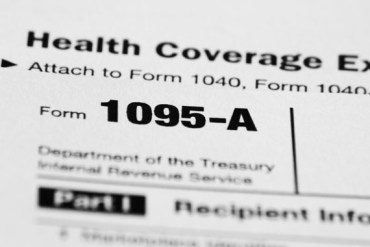As the 2015 tax filing season gets underway, tax preparers said a delay in new health law tax forms is causing confusion for some consumers, while others want details about exemptions from increasingly stiff penalties for not having insurance.
Under the law, most people must have health insurance or pay a fine. In 2015, the penalty was $325 per adult and $162.50 per child up to $975, or 2 percent of household income, whichever is greater. This is the first year that employers, insurers and government programs such as Medicare and Medicaid are required to send consumers tax forms that report whether they offered or provided health insurance that was considered affordable and adequate under the law. The forms, 1095-B or 1095-C, are designed to help consumers in filling out their taxes but don’t need to be filed with their tax returns. The issuers also send copies to the Internal Revenue Service.
Some consumers, however, may not receive the forms until shortly before the April 15 tax filing deadline because the IRS has pushed back the due date from Jan. 31 to March 31 for employers and others that provide insurance.
What’s a consumer to do? File anyway, even without the form, the IRS says. If people make a mistake on their return because they didn’t have the 1095-B or 1095-C forms and relied on information from their employer or other coverage providers instead, they won’t have to amend their return, the IRS said.
For the 85 percent of people who had coverage all year, the delay is a non-issue, said Tara Straw, a senior policy analyst at the Center on Budget and Policy Priorities who manages one of the IRS’ Volunteer Income Tax Assistance program offices that provides free tax help for lower income people. These people can just check the box on their return that reports that they had full-year coverage. If their 1095-B or 1095-C reports that they did not have coverage all year, they can simply ask their employer or insurer to correct their records and what they sent to the government.
“But there will be a small number of people who enrolled in marketplace coverage that now show overlapping coverage, and we’re quite worried about those people,” Straw said.
Consumers whose income fluctuated near the cutoff for Medicaid coverage, for example, could potentially be on the hook for repaying advance premium tax credits they received for marketplace coverage when they were actually enrolled in Medicaid. Problems could arise if the new forms are inaccurate or tax preparers aren’t familiar with the rules in such situations.
“We’ve heard about some problems” in this area, Straw said.
In these types of situations, consumers may need to contact the marketplace and whoever provided their other coverage to correct the forms.
“People will need to be proactive in this,” Straw said. “Be your own advocate and make sure the forms are accurate before you just repay.”
 People who have marketplace coverage receive 1095-A forms that report when they had coverage and the amount of advance premium tax credits received. The 1095-A forms were not delayed and went out on schedule in January.
People who have marketplace coverage receive 1095-A forms that report when they had coverage and the amount of advance premium tax credits received. The 1095-A forms were not delayed and went out on schedule in January.
In addition to questions about the 1095 forms, consumers are asking tax preparers at H&R Block about qualifying for exemptions from the penalty for not having insurance, said Lindsey Buchholz, a tax attorney at H&R Block’s Tax Institute.
Among the most asked about of the roughly two dozen exemptions is the one that allows people to avoid a penalty because the lowest priced coverage available to them either from their employer or on the marketplace would have cost more than 8.05 percent of their income, the threshold at which it’s considered unaffordable, Buchholz said.
“Most of the time they don’t qualify for the exemption because they would have qualified for premium tax credits, and the assistance makes it affordable,” she said.
People can also apply for exemptions because of hardship, including eviction or foreclosure, bankruptcy, the death of a family member and medical debt, among others.
“We’re seeing more interest in hardship exemptions this year,” probably because the penalties for not having insurance are increasing, Buchholz said.
One common exemption that many people overlook relates to the federal tax filing threshold. If consumers’ household income is below the level that requires them to file an income tax return, they’re exempt from the penalty for not having health insurance. In 2015, the threshold for a single person was $10,300 and for a married couple filing jointly it was $20,600.
Last filing season, more than 300,000 people overpaid the penalty for not having insurance, according to the IRS’ Taxpayer Advocate Service.
The IRS eventually notified people of the overpayments, said Straw.
“The IRS sent letters, but they didn’t send checks,” she said. Although amending a tax return isn’t hard, some taxpayers would likely seek out professional help. “For some people the cost of correcting it will be greater than the size of the check.”
Please contact Kaiser Health News to send comments or ideas for future topics for the Insuring Your Health column.







